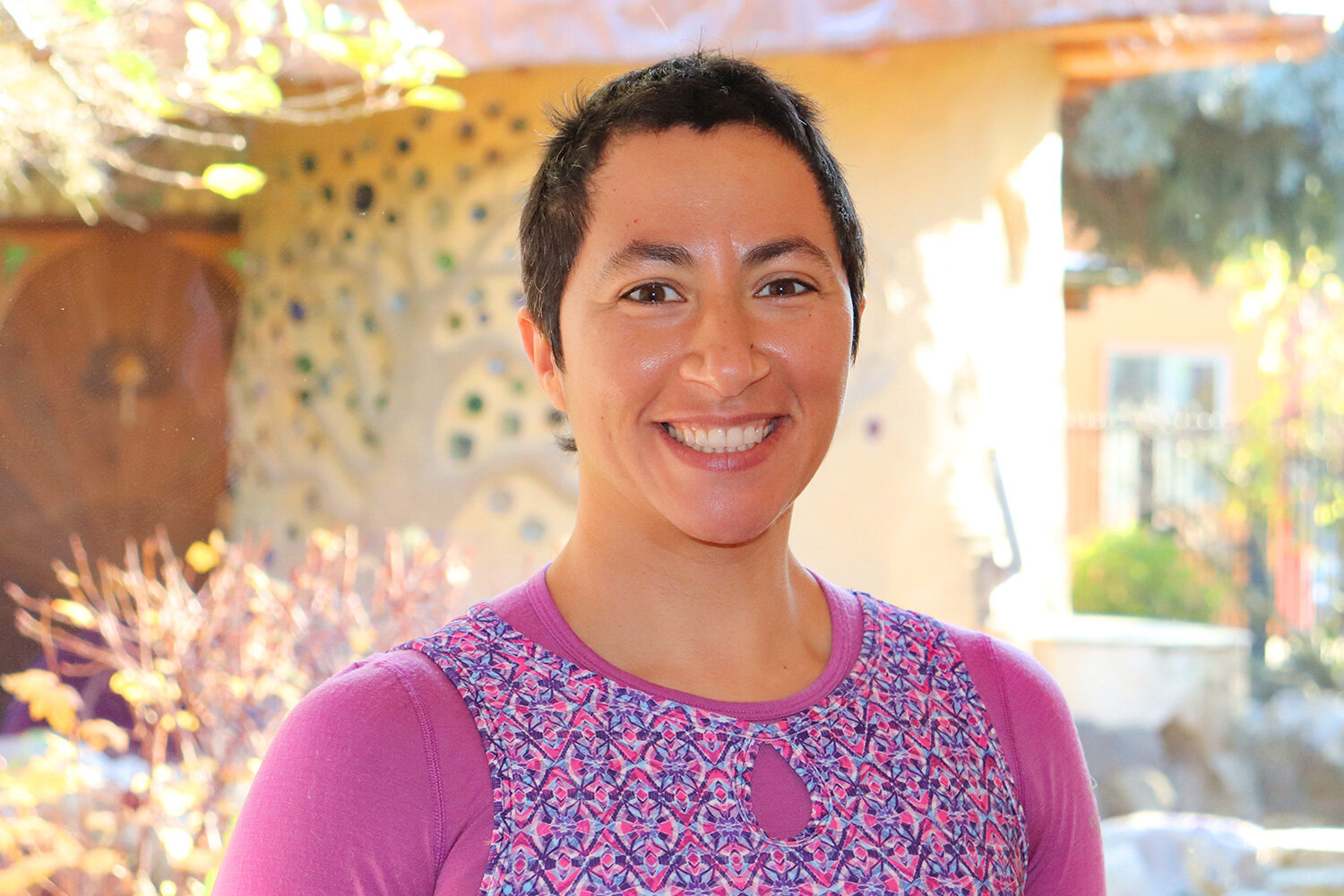Intentional Growth
For 40 years, the New Day community has continued to enhance its indoor and outdoor environments.
Didi Ananda Krisnapriya, New Day’s director since 2001, arrived with a vision to redefine the school’s Neo-humanist pedagogy and expand its practical application of Neo-humanist philosophy to all areas of the school’s environment. New Day began to increase the organic garden area and a fruit orchard was grown in and near the play yard. This initiative quickly grew into a hands-on, year-round garden curriculum for the children which includes lessons on seasonal cycles, the growth and uses of medicinal herbs, apiculture, plant biology, worm composting, and many other lessons of organic gardening techniques and permaculture.
In 2003, a beautiful cob structure was built in the garden as part of a citywide alternative building initiative and soon after four rainwater catchment systems (called rain gardens) were constructed which help with cleaning rainwater pollutants and sediment from polluted stormwater runoff. Another project included the construction of a large composting system which connected the student’s daily meals to the cycle of food waste and to further compliment the school’s vegan, garden-to-plate meal program.
In 2008, New Day purchased the Mahávidyá building and later transformed its very large parking lot into a green space with the help of depave whose purpose is to remove pavement in order to create urban greenspaces. The new gardens and land more than doubled the New Day School campus to just under one acre.
By integrating native plants and removing invasive ones from the green space, the program then attained certification as an Audubon society nature habitat.
The school’s campus currently includes three buildings, two used for project activities and a third residential building that houses teachers and volunteers.










